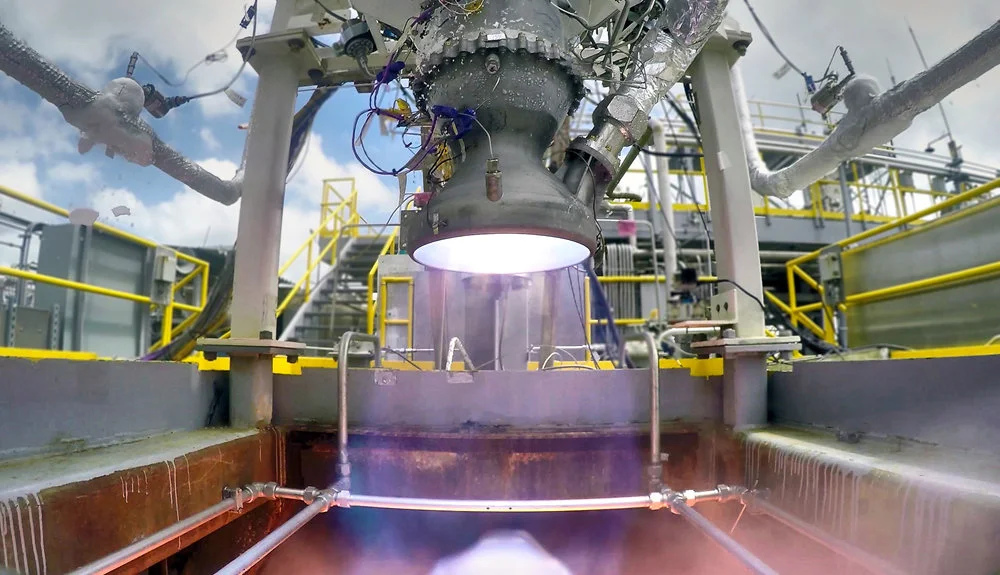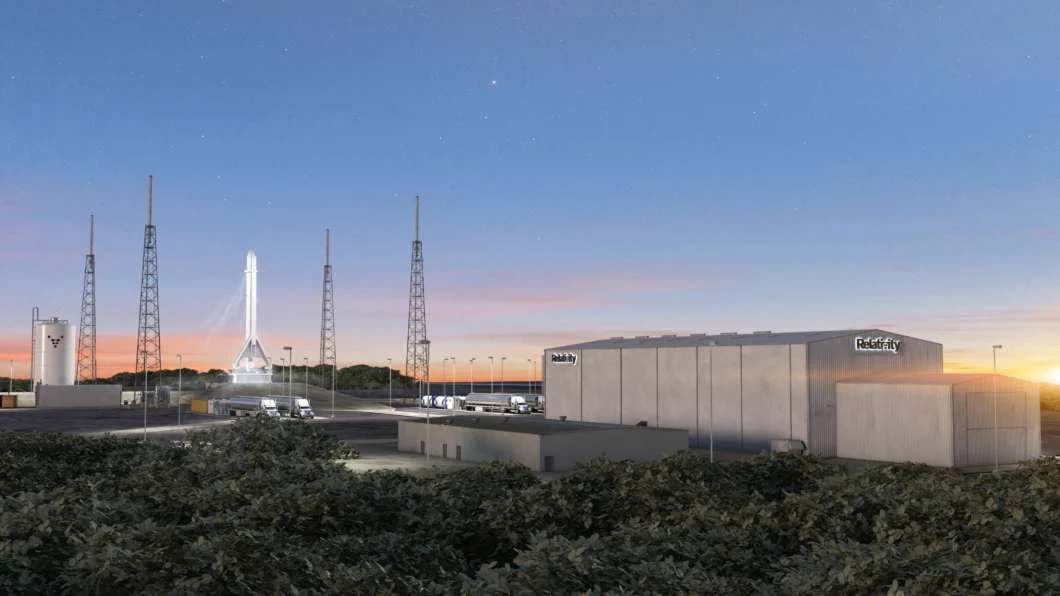The ambitious rocket company Relativity announced its first customer on Friday, the global satellite operator Telesat. The contract for flights on the Terran 1 rocket includes "multiple" launches, but Relativity chief executive Tim Ellis said he could not provide additional details.
Read MoreA startup bringing a new 3D-printed rocket to Cape Canaveral has announced its first launch contract. Relativity Space said Friday it has signed a multi-mission deal with Canada-based Telesat, one of the world’s largest commercial satellite operators.
Read MoreRelativity, the Los Angeles-based manufacturer of 3D-printed rockets, has signed its first public commercial contract with Telesat, the longtime vendor of satellite services for telecommunications and business information.
Read MoreRelativity Space is creating the first autonomous rocket factory and launch service — by 3D printing entire rockets. CTO and Co-Founder Jordan Noone is excited by what they can create as they combine machine learning with 3D printing.
Read MoreThere are about two dozen launch sites along Florida's coast that have been abandoned for years. And the future of this area looked bleak when NASA's Space Shuttle program ended in 2011.
Read MoreRelativity, the California startup in pursuit of the world’s first entirely-3D printed rocket, has made two advances in terms of IP and personnel.
Read MoreToday, three-year-old rocket startup, Relativity Space has not only added real estate but employees — and is putting the finishing touches on three additional 3D printers, each larger and more advanced than the company's first printer.
Relativity Space aims to build rockets using enormous 3D printers.
Read MoreRelativity, an autonomous rocket factory and launch services provider, was granted a new patent. Relativity was recently granted US. Patent Number US20180341248A1, Real-time adaptive control of additive manufacturing processes using machine learning, for its 3D metal printing technology using advanced sensors and control software. According to the release, Relativity is the first and only aerospace factory to use a proprietary and patented autonomous 3D printing technology, Machine Learning (ML), and software to optimize the rocket manufacturing process.
Read MoreNASA will kick its moon exploration plans into high gear over the next month with announcements on what it wants its commercial partners to deliver and where.
Read MoreRelativity has appointed three aerospace veterans to the company's executive team and has received an industry-leading, new, patent grant for their autonomous 3D printing technology.
Read MoreLos Angeles-based startup Relativity Space, which aims to 3D print a rocket capable of carrying up to 2,700 lb. (1,250 kg ) to low Earth orbit (LEO), has been granted a patent for a machine-learning technique for its additive manufacturing process
Read MoreSmall launch vehicle developer Relativity has added three people, all of whom previously held key positions at SpaceX, to its leadership team as it refines the technologies it will use on its rockets.
Read MoreRelativity, a space startup that wants to use its gigantic 3D printer to build rockets on Earth and, eventually, on Mars, is seeking its first patent—and the approval of industry insiders.
Relativity has built the world’s largest metal 3-D printer, dubbed "Stargate," with the goal of building a rocket constructed almost entirely of 3-D printed parts.
As early as 2020, 3D-printed rockets could launch into the skies from Cape Canaveral Air Force Station.
Read MoreRelativity Space, an autonomous rocket factory pioneering a new, speedy process of building and launching rockets, has received approval from the U.S. Air Force to use Cape Canaveral’s historic Launch Complex 16 for the construction of its own launch facilities.
Read MoreLast March, Nasa announced it would give the venture-backed rocket startup Relativity Space access to the Stennis Space Center in Mississippi to use as its testing facility… free of charge.
Read MoreUS start-up Relativity Space has reached a deal with the US Air Force (USAF) to build and operate its own launch facility at Cape Canaveral Air Force Station in Florida, US.
Read MoreLos Angeles-based Relativity Space, a three-year-old start-up that aspires to build rockets using 3D printers, announced a contract Thursday with the U.S. Air Force to build and operate a launch facility at Cape Canaveral Air Force Station in Florida.
Read More

















